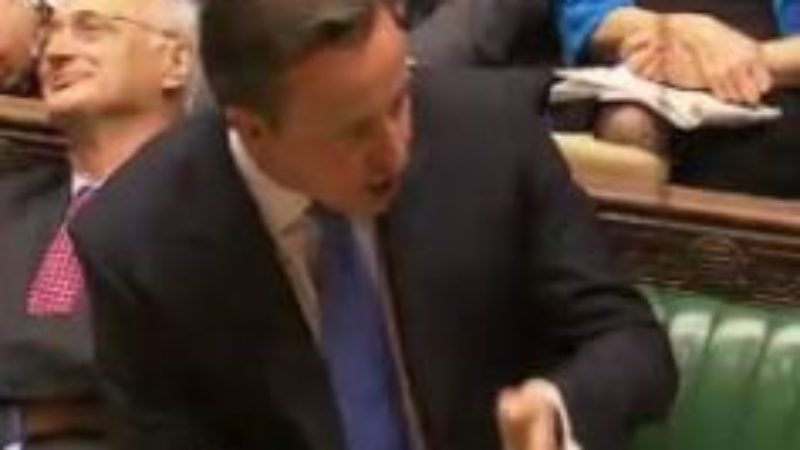
Another day, another government u-turn. The narrative for this political act is so prescient that you can almost hear Labour’s screams of anguish and foresee tomorrow’s incredulous headlines. It has become automatic in the political sphere that to change your stance an inch is a sign of irreversible weakness. Governments, after all, are not for turning. This government has, however, made something of a habit of announcing u-turns. From free milk to anonymity for rape suspects, David Cameron’s government is for turning. A breathless media rush out comprehensive lists describing each and every u-turn; gormless Labour front benchers indulge in shameless political opportunism by tweeting pictures of pasties. It’s all good fun and games, but has become decidedly boring and is having a toxic effect on our politics.
Ever since Thatcher delivered her immortal line u-turning has carried the greatest of political black marks. Arguably prior to this, the ability to change course was implemented proudly by her pragmatic forbearers. Better a u-turn than a brick wall. But even when u-turns are executed in the best spirit, or because the original decision was just plain wrong, the decision is nowadays met with derision. Humiliation must be heaped on the government, a pound of flesh extracted from the embattled minister – hopefully with a resignation thrown into the political mix. What matters most to the belligerent opposition and media is not the direction of the u-turn, but namely that it exists at all. It has made for bad governance and must stop.
A government should be praised rather than condemned for showing a willingness to stop and rethink. One of the most infuriating traits of the macho New Labour years was their insistence that nothing they ever did was wrong, with Gordon Brown chief amongst the antagonists for never seeking redress. Initial government failings are exacerbated by their reluctant to countenance a change of direction. Often a government’s real failing was refusing to listen to constructive advice at the outset and when it does, once the policy is in place, it is politically too late for alterations. The media and opposition politicians continually drive this stupidity.
It is to the eternal shame of British politics that the chance to rethink policies and politics should be subject to the most appalling fury. Much of it manufactured, it must be noted. Reversals, particularly where they are truly sensible, are surely preferable to pressing on against all reason, out of sheer bloody-mindedness.
It is only a year since Ed Miliband demanded his Shadow Cabinet stop ridiculing the government’s already many u-turns. The reason was really very simple. Private polling revealed that the public, wait for it, truly did not mind ministers changing their minds.
Of course, to u-turn endlessly would mean for incoherent and ultimately chaotic governance. Businesses, the public and the economy need steady and solid government. Nobody would suggest otherwise. A u-turn needs to be handled with competence, with the purpose clearly signalled and, with the expected onslaught, delivered with a certain panache. But they are not inherently a bad thing, and let’s stop pretending otherwise.
What should matter is whether a u-turn is in the right direction. Gone should be the days of those damned for doing the wrong thing then damned for doing the right one. Labour was severely scarred by its obstinacy; the coalition has seemingly learnt from this and has developed an in-built desire for compromise. Where this government proposes truly damaging and dangerous legalisation it should be assaulted with all the force the Labour party can muster. But where a government has proven it can listen and produce better policy, it deserves praise – not scorn.




More from LabourList
‘As metro mayors gain power, Labour must tighten political accountability’
Letters to the Editor – week ending 22 February 2026
‘The coastal towns where young people have been left behind by Whitehall’